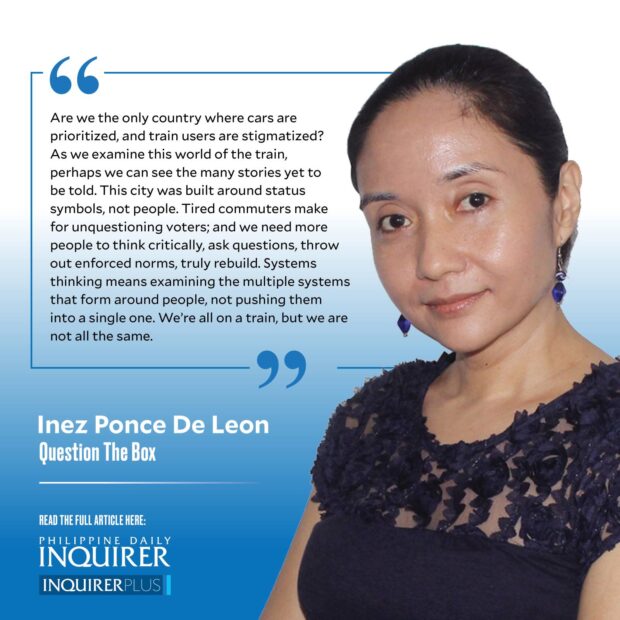
The question also made me remember a recent encounter I had with a fresh graduate of a science-related program. He was skeptical of the legitimacy of the social sciences, he said, since research findings cannot be generalized. This is a narrow view of science, and tragic on two fronts.
First, he reduces science to mere findings. Science, however, is a systematic process that must move logically from one step to the next. Sometimes you get the results you want, most of the time you don’t. Regardless, researchers have to truthfully report their results, not erase nuances in favor of a desired majority view.
Second, he refuses to acknowledge how multiple contexts can shape diverse perspectives, even generate multiple cultures. Had he simply conversed with people from another field of study, he would already have seen differences in how people make meaning of reality. Instead, he clings to the idea that people must be treated as a single mass of obedient humans so that they fit into a system for some form of national development.This is a disturbing trend that is quite common among many students. They seek to create a single message, with minimal effort, to change people all at once. They rely on social media, thinking that their voices will be heard by millions and understood as they intended. They forget that social media is governed by algorithms: The students are preaching to their echo chambers. Reality beyond/behind the screen is vastly different.
To go outside their social media reality, students need to go offline and really, truly talk to people. My beginner researchers dread the prospect. Can’t they just do something on social media, they ask, since it “reaches out to the masses?”
They take these words back during their thesis year (THANK GOD!) when they uncover the joy of listening to stories and find that their concept of reality is incomplete, even wrong. Most students, however, still love the safety of their comfort zones, because, as with any people-oriented ventures, a step out puts them at risk of getting their previous assumptions shot down. And for some in this generation, finding out that one is wrong is taken as self-indictment rather than a chance to explore—so they live with their (unfounded) assumptions instead.
The train system is perhaps the easiest way to glimpse diverse lives. Trains are not an equalizer; the train is merely a space for people of varying origins to move together in a common direction. It is an incubator to see what sets us apart, and what brings us together.Not falling in line? Standing in the train doorway while people are entering? Barging into the train while other people are exiting? If we look only at these, we might conclude that Filipinos who live in urban areas are inconsiderate.Now, look closer. In a country supposedly obsessed with TikTok, we do see people scrolling through videos; but we also see a lot of young people reading printed books. In a patriarchal country with high birth rates, we do see mothers tending to a brood of children; but we also see fathers holding on to both babies and toddlers, telling them stories. In a country of call centers, we do see workers sleeping; but we also see a variety of other professionals making the train their respite from work.
As we examine this world of the train, perhaps we can see the many stories yet to be told.
This city was built around status symbols, not people. Tired commuters make for unquestioning voters; and we need more people to think critically, ask questions, throw out enforced norms, truly rebuild. Systems thinking means examining the multiple systems that form around people, not pushing them into a single one.
We’re all on a train, but we are not all the same.
iponcedeleon@ateneo.edu

